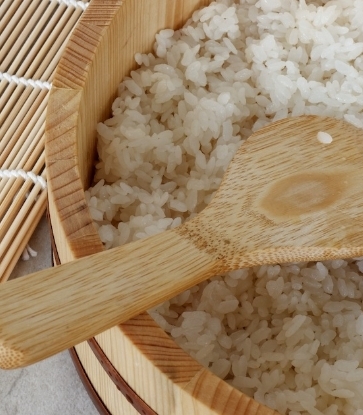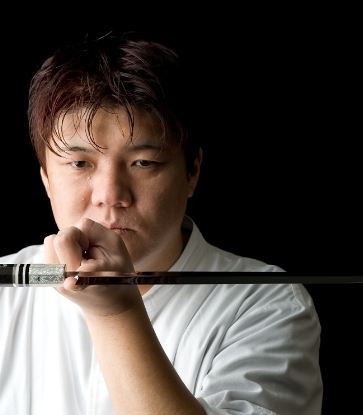There are more than 50 varieties and hybrids of basmati seeds of various grades. Of these, there is perhaps none more esteemed than the 1121, a low-yielding variety used by premium basmati rice brand Sameza. Founder and chief executive officer Bably Bhasin is passionate about putting out an unadulterated product: “When you buy a bag of Sameza basmati, you can be assured that every grain is pure 1121, and only the cream of the crop, the perfect, unbroken grains that have come out of the milling process.”

For 37 years, her family has owned and operated a mill in India, turning out more than 50,000 tonnes of rice annually. Of this, they produced a limited quantity of the premium 1121 variety of basmati which, up to recently, was sold only to the royal families in India and the Middle East.
In 2016, Bably and her late husband Pankaj Bhasin founded Sameza in Singapore to make this rare product available to the public for the first time. "Sameza was conceived at our dining table. Our three children Sana, Mehr and Naweza ate spoonfuls after spoonfuls of rice, their eyes gleaming, and my husband and I knew there was only one way we could share the warmth of our hearth with the world," Bably shares.
Sameza Vintage Collection’s 1121 seeds are grown by trusted farmers and purchased ethically at harvest, and thereafter aged to perfection for two years, just like fine champagne. The rice then undergoes the latest raw milling process at a state-of-the-art plant. Only grains that meet technical perfection are chosen and packaged in innovative nano-perforated high quality bags that allow the rice to breathe. What you'll find in every Sameza Vintage Collection bag is pure, unadulterated and unbroken, grains of premium 1121 rice.

Basmati is known for its floral fragrance and nutty aroma, as well as its fluffy texture and length. For Sameza’s Vintage Collection of premium basmati rice, heritage farming and time-honoured milling techniques combined with a two-year ageing process result in perfect cooked grains that are almost an inch long.
“I was very amazed by the consistency of the rice — it’s light and long but doesn’t break during cooking. My regular guests noticed the difference immediately. They would ask what I did to my biryani or pilaf or pulao that it tasted so different from before,” says chef Javed Ahamad who began using Sameza basmati at his fine dining Indian restaurant Punjab Grill in Marina Bay Sands in 2016.
In addition, basmati has been known to have a whole host of health and nutritional benefits. Compared to the average basmati and other varieties of rice, Sameza's premium grains are very low in starch, naturally gluten- and cholesterol-free, and Halal and Kosher Certified. It is also high in fibre while being low in fat and sodium. Easily digestible, Sameza Vintage Collection is a heart-healthy source of carbohydrates. “It’s a myth that you have to cut out rice completely to get fit or lose weight,” says Bably. “You just need to eat the right rice.”

For chef Manjunath Mural of one-Michelin-starred restaurant Song of India, basmati holds a special place in his heart. “During my childhood, I always loved and craved dishes like pulao with meat and biryani. But because it’s an expensive rice, my mum and grandma would cook it only for special occasions like festivals or if there was a guest coming to our house.” At his fine-dining restaurant, he showcases the beauty of basmati in a variety of dishes, from pulao rice and his signature dum biryani to desserts like dried fruit kheer and saffron phirni.
However, the use of basmati is not just limited to Indian cuisine. At Thai restaurant Blue Jasmine, basmati is used as the perfect foil for the rich and flavourful curries and sauces found in Southern Thai cuisine. “Although jasmine rice is more common in Thai cuisine, I like basmati because I feel it is lighter and easier to digest,” says chef Duangjaisantisuk Nipaporn. “It also goes well with all the kinds of curry dishes, roasts and barbecued meats we have in our buffet selection.”

“It’s a very easy rice to use,” says chef Javed who uses basmati in dishes from stuffed paratha to porridge with lentils and spices. He advises against over-rinsing basmati, as it will cause the rice to lose its nutrients, and being careful not overcook it. “You only need to rinse the rice and soak it for 15 to 20 minutes before cooking and you’ll get a fluffy white rice that shines nicely and is full of aromatic flavours.”



















